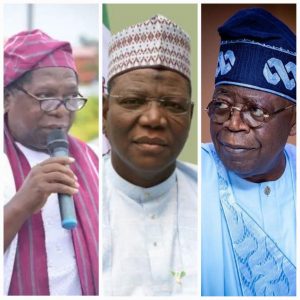The Adamawa State Government has officially stripped former Vice President Atiku Abubakar of his traditional title as Waziri Adamawa, citing non-indigeneship as the reason for the decision. The move, announced in a circular dated June 20, 2025, and signed by the Permanent Secretary of the Department of Chieftaincy Affairs, Mrs. Adama Felicity Mamman, has sent shockwaves through political and traditional circles alike.
The Waziri Adamawa title is traditionally considered the second most influential in the Adamawa Emirate, subordinate only to the Lamido of Adamawa. Atiku’s removal, along with that of other titleholders such as the Walin Adamawa, follows new directives stating that all kingmakers and council members must be indigenes of the specific chiefdoms they serve. According to the circular, this means individuals must hail from specific districts within the emirates, such as Yola South, Yola North, Girei, and others, effectively disqualifying Atiku, who is from Jada Local Government Area under the Ganye Chiefdom.
The timing of the announcement has raised eyebrows and stirred controversy. Political observers see the decision as a calculated attempt by Governor Ahmadu Umaru Fintiri to weaken Atiku’s standing in the state. Once allies under the Peoples Democratic Party during the 2023 general elections, relations between Fintiri and Atiku have grown increasingly strained. Atiku’s recent engagements with Fintiri’s political opponents, including Aishatu Binani, Peter Obi, and Nasir El-Rufai, to form a new opposition coalition ahead of the 2027 elections, appear to have deepened the rift.

Further intensifying concerns is a pending executive bill before the Adamawa State House of Assembly, which seeks to give the governor the power to depose traditional rulers deemed unfit and replace them with individuals of his choosing. Critics argue the bill could pave the way for a wide-reaching political purge under the pretext of traditional reform.
While officials maintain the directive is a routine administrative action in line with the restructuring of chiefdoms, the symbolism of removing Atiku from one of the most prestigious traditional positions in his native state is being widely interpreted as a high-stakes political move with far-reaching implications.
Stay ahead with the latest updates!
Join The Podium Media on WhatsApp for real-time news alerts, breaking stories, and exclusive content delivered straight to your phone. Don’t miss a headline — subscribe now!
Chat with Us on WhatsApp





